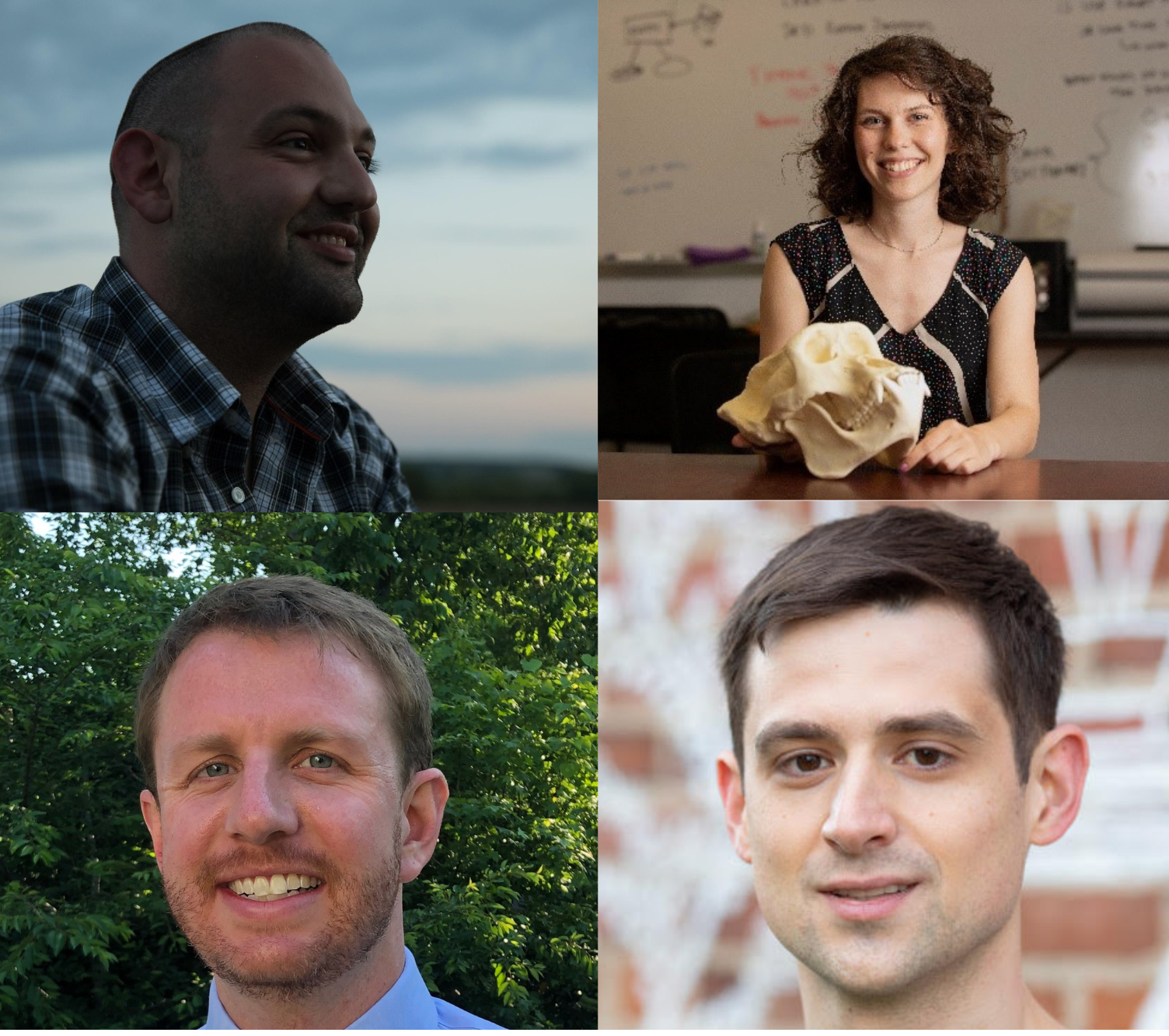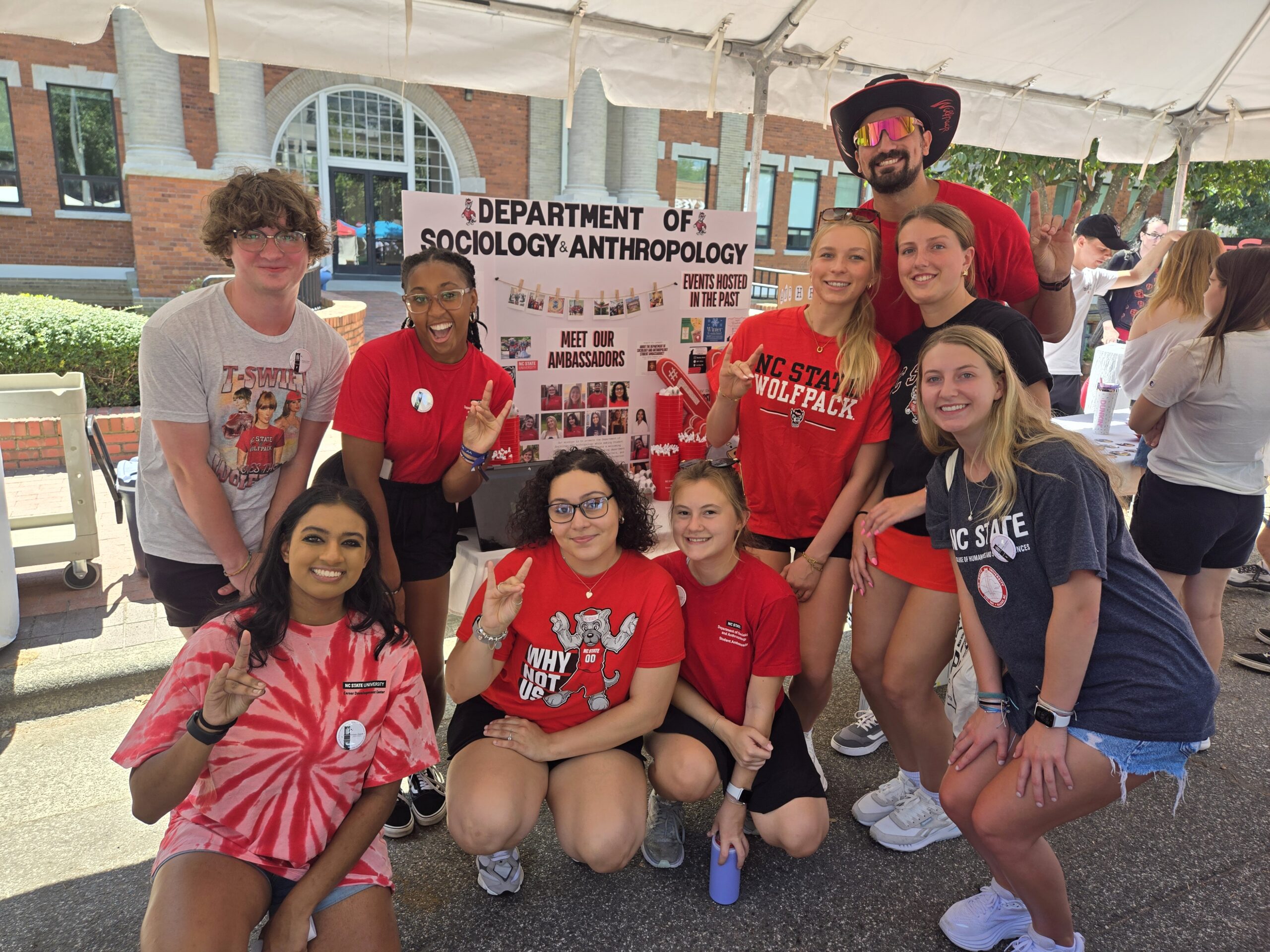Making Connections During COVID-19

This past fall, the Department of Sociology and Anthropology and it’s Student Ambassador Program started the Student Connections Program. Stephanie Jares, the Coordinator of Advising for the department and the Director of the Student Ambassadors, brought this idea to her group of ambassadors as an opportunity to connect with all of the 517 undergraduate students in the Department despite the students being off campus due to the COVID-19 pandemic. Each student ambassador has been assigned a group of current and incoming students to connect with, making sure that each student within the department would receive monthly emails from one of the team members.
Since this program has started, it has helped various current and incoming students with a variety of topics, including school-related tips and tricks, class recommendations, club offerings, and internship opportunities. Most importantly, however, it provides a direct connection between students in the Sociology, Criminology, and Anthropology majors and the Department of Sociology and Anthropology through someone who can relate to them and gives students an opportunity to ask one of their peers any questions they might have about the major, the department, or the school as a whole.
One of my favorite parts about the program has been being able to share my tips for academic success and healthy living with the students I connect with. Some of the tips my emails have included have included ways to deal with stress during online classes, tips for studying for finals, and how to start the spring semester off well. The most recent set of tips about kicking off spring semester included:
- Put all of your assignments into your calendar after receiving your syllabus. I specifically like using Google Calendar because you can get alerts when something you have scheduled is coming up, so it keeps me on top of my assignments. You can also use Google Tasks along with this and it’ll link your to-do list to your Google Calendar.
- Try to reach out to others in your classes and make friends. I know that Zoom classes makes this harder, but having 1 or 2 people to talk to about the class and assignments can be very useful. It can be a way to get help but also to vent if things are rough. Suggesting a class groupme can also be a great resource.
- Don’t be afraid to go to your teacher’s office hours or make an appointment to talk with them. I have made some great relationships with my professors by doing this and made my grades much better. If you don’t understand something, having that one-on-one time could make all the difference.
- Make sure to get outside your apartment/house. With everything being online, it can be very tempting to sit at home all day, but so many studies have shown that getting out of the house does wonders for your mental health. Just taking a walk, going to the gym to work out, or grabbing lunch with a friend could make your day much better and keep you from falling into a slump mentally and physically.
- Watch yourself for signs of burnout. This website is a great resource that lists signs of burnout, how to prevent it, and how to deal with it. I think it is especially important to keep a check on your mental health with everything that’s going on currently, and also don’t be afraid to reach out to the Counseling Center. They’re a great resource as well.
Other ambassadors have found the Student Connections Program as equally important as I have. Deirdre Byrnes said that she loves the program because of how connected she feels to other students that she hasn’t had a chance to previously meet within the department, which she finds especially important during the COVID-19 pandemic when many students have been unable to return to campus. Ena Pojol said that she loved receiving email replies from her fellow students because it made her feel like she was making an impact on someone’s day or week. Mary Erickson said she also loves getting to talk to students and providing them with an extra push towards resources such as the Counseling Center and Academic Success Center.
Overall, the Student Connections Program has had a positive impact on each of the ambassadors involved, and we hope that it positively impacts the students that we connect with. As Mary Erickson stated, “I just hope students know that us Ambassadors are here as a resource for them, and that they are part of a Department that has a lot of people who care about them.”
This post was written by Brianna Johnson, a senior studying anthropology and criminology with minors in forensic science and Middle East Studies and a Department of Sociology and Anthropology student ambassador.



